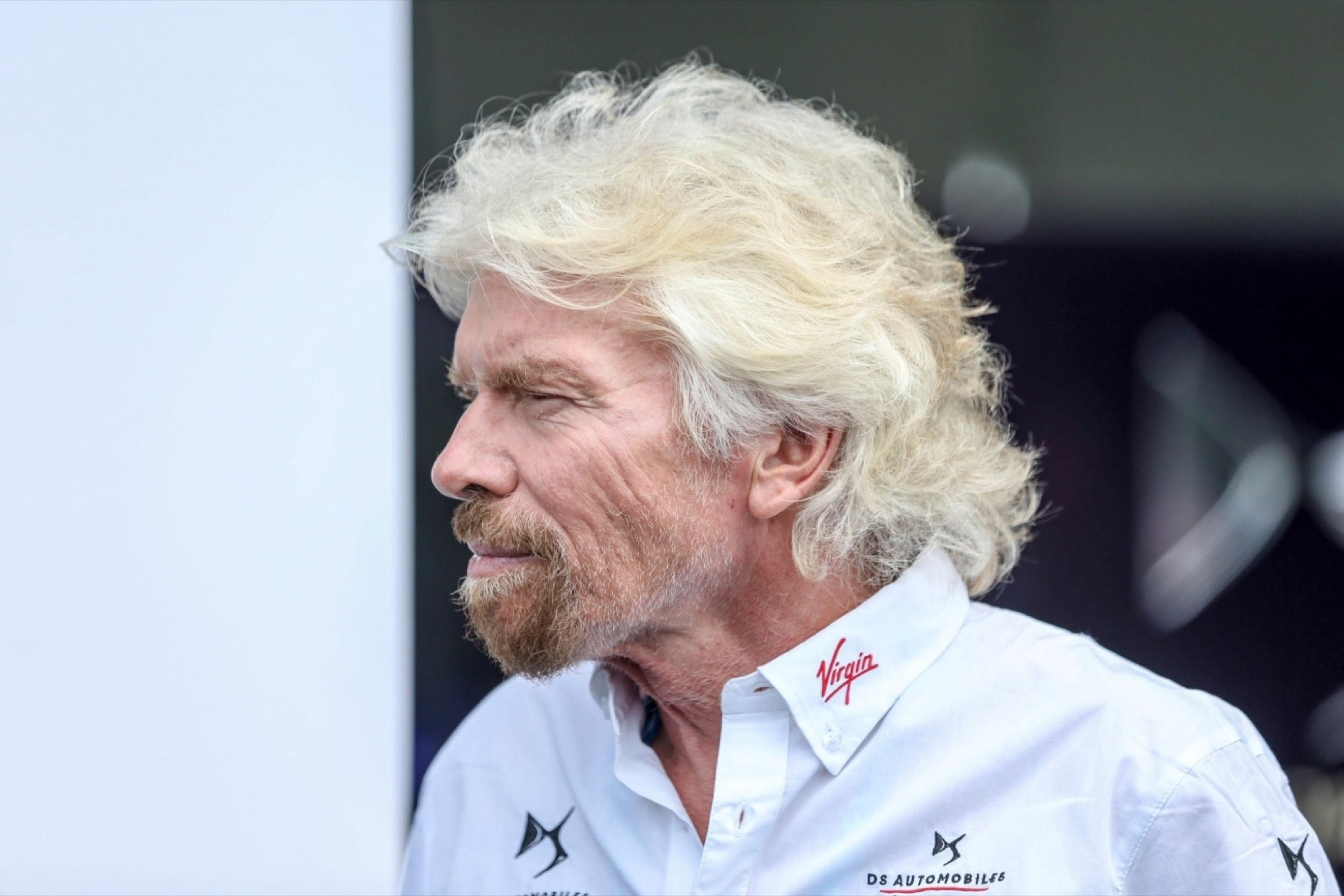Six Famous Entrepreneurs Who Show How Your Personal Brand Powers Deal Flow Your personal brand reflects more than what people think of your product or service, it's what they think of you, and will determine what your business will really be worth in the end.
By Cynthia Johnson Edited by Dan Bova
Opinions expressed by Entrepreneur contributors are their own.

Your personal brand is your calling card for attracting like-minded people who will believe in your message. Whether you are a freelancer, startup or you just received your first round of financing, the effort you put into your personal brand directly affects how others perceive the value of your business.
Related: The Seven Key Elements of an Effective Personal Brand
A third of people trust messages from a brand, but 90 percent trust messages that come from someone they know. While it may not be possible for everyone to know you on a personal level with direct interaction, a personal brand can give people an idea of who you are and what you're all about. The easier others can assess your personal brand, the easier you will find it is to improve your deal flow.
Your personal brand should answer several questions.
- What personal values are most important to you, and how does your company reflect this?
- What's your story behind your business?
- Do you have the skills and knowledge that ensures quality others can trust?
- What is it about you that others can relate to on a personal level?
Here are a few examples of how successful entrepreneurs have leveraged their personal brands to increase their deal flow.
Related: How to Tell Your Company's Story
1. Jessica Alba, The Honest Company
We first knew Jessica Alba as an actress, but motherhood defined her mission as founder of The Honest Company. Alba's story behind her company came from a common struggle that parents face, searching for non-toxic and pure household ingredients and childcare products.
"I did research when I was pregnant with my first daughter and was horrified by the chemicals in products, even those meant for babies. I would have to go to 50 different places just to get my house and my kid clean," Alba told Parade in 2012.
As the ideal customer of her own company, Alba's mission to fulfill a gap in clean products for parents has led to a deal flow that has given The Honest Company its value at nearly $2 billion.
2. Richard Branson, Virgin Group
The decision-maker and visionary behind a leading travel and leisure empire shouldn't be boring. Richard Branson's playful and fun personal brand has helped the Virgin name extend across over 200 companies.
Branson describes himself on Twitter as a "tie-loathing adventurer, philanthropist, and troublemaker … Dr. Yes." Branson's down-to-earth persona has been consistently reflected in all of his ventures.
This is a man who once gave all of his employees his personal phone number. Branson's brand has built trust through customer-centric values, and his deal flow comes largely from our belief that that Virgin is friendlier and more human than companies of this size.
Related: Eight Tips for Building Your Personal Brand in 2017
3. Daymond John, share your journey
Daymond John has truly earned his credibility from the dues he paid by starting FUBU. His personal brand is built on his story of hard work that led to the success of his clothing line. Daymond rolled up his sleeves and with the help of his mother, he learned how to sew and make the first FUBU prototypes in his home.
Daymond John began building his business between shifts at Red Lobster and launched an iconic brand to fulfill a need for more affordable fashion in New York. A pioneer of streetwear, Daymond's deal flow increased from his authenticity and has even led to FUBU appearing in the Smithsonian's Museum of African-American History and Culture.
4. Sheryl Sandberg, LeanIn.org
Many of us believed the tech industry to be a man's world until we got to know Sheryl Sandberg. While her influence set sail as the role as the COO of Facebook, Sandberg truly solidified her personal brand and earned her net worth of over One Billion from Lean In and founding LeanIn.org.
Sandberg's book became a conversation-starter and her introduction into a far more public persona, making her the household reference for women who struggle to "have it all" and break through male-dominated industries.
The power in Sandberg's personal brand is why "leaning in" became the new phrase for assertive women in the workplace. After the public and tragic death of her husband, Sandberg has continued to show strength and resilience, inspiring her most recent book Option B: Facing Adversity, Building Resilience and Finding Joy.
5. Guy Kawasaki, expand your reach
Your personal brand doesn't always have to be packaged around you. If you're like Kawasaki, you can show the world who you are by teaching your passions to others. Kawasaki is chief evangelist at Apple, founder of Garage VC Fund and Fog City Software (among others). Kawasaki is also advisor to Motorola and is chief evangelist of Canva.
Kawasaki's experience has built trust that he knows how to succeed, and he's said, "The first good reason to write a book is to add value to people's lives." Kawasaki has not only built great companies to add value but has continuously taken steps to do this by sharing what he knows.
In this way he is sharing with those who want to improve their skills. The A.P.E. (Author, Publisher, Entrepreneur) has written over 10 books, from Selling the Dream to How to Drive Your Competition Crazy.
Related: 10 Ways to Grow Your Business
6. Gary Vaynerchuk, ask GaryVee
Even in under 140 characters, there is plenty you can tell the world about yourself. Best-selling author, entrepreneur and speaker Gary Vaynerchuk first began to solidify his brand by jumping on the Twitter machine in perfect timing.
Using his social influence as GaryVee and through his "DailyVee" vlogs on YouTube, Vaynerchuk has sometimes been criticized for overexposure. But with a following of over one million people, there is no denying that Vaynerchuk knows how to engage us and cares enough to publish on a consistent basis.
The VaynerMedia founder has maximized his deal flow by regularly sharing where the public's ears and eyes are and have gained a loyal following of fans who have helped him expand his reach.









